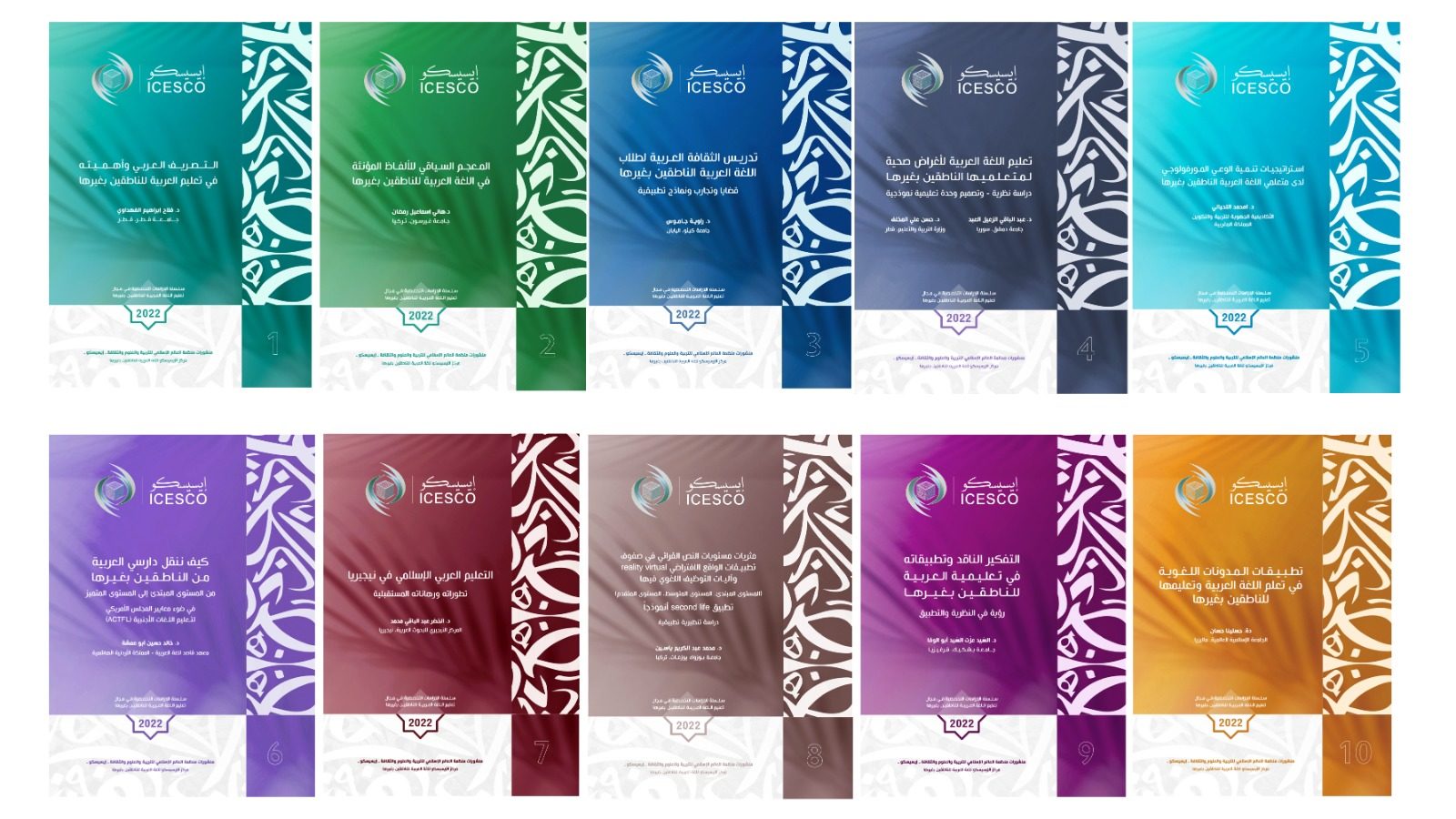
ICESCO Issues Ten Academic Studies in Teaching Arabic to Non-Arabic Speakers

16 May 2023
The Center of Arabic for Non-Arabic Speakers at the Islamic World Educational, Scientific and Cultural Organization (ICESCO) released the second series of academic studies in the field of teaching Arabic to non-Arabic speakers, as part of the Center’s supersized “specialized studies” project.
The project aims at enhancing ICESCO’s presence in the field of scientific research and publication, consolidating scientific and educational research, keeping pace with educational and cognitive developments in Arabic language teaching curricula, courses and educational means, and strengthening the Center’s relationship with researchers specialized in teaching Arabic to non-Arabic speakers from inside and outside ICESCO Member States.
The ten publications of the second series revolve around the topic of teaching Arabic to non-Arabic speakers, from various aspects and different perspectives co-authored by a group of experts from different universities representing nine countries: Nigeria, Kyrgyzstan, Morocco, Japan, Turkey, Jordan, Syria, Qatar and Malaysia.
These publications are titled are follows:- Arabic conjugation and its importance in teaching Arabic to non-Arabic speakers.
– Contextual dictionary of feminine words in Arabic for non-Arabic speakers.
– Teaching Arabic culture to non-Arabic students: issues, experiences and applied models.
– Teaching Arabic for health purposes for non-Arabic learners: a theoretical study and designing a model educational unit.
– Strategies for developing morphological awareness among non-Arabic learners.
– How to transfer non-Arabic learners from the beginner level to the distinguished level in light of the standards of the American Council on the Teaching of Foreign Languages (ACTFL).- Arab-Islamic education in Nigeria: its developments and future bets.
– Enrichments of the levels of reading text in virtual reality applications and their mechanisms for language use: the application of Second Life as a model.
– Critical thinking and its applications in teaching Arabic to non-Arabic speakers: a vision in theory and practice.- Applications of language blogs in learning and teaching Arabic to non-Arabic speakers.




